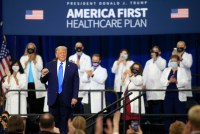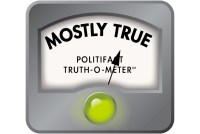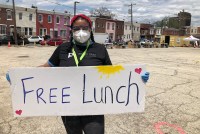Latest KFF Health News Stories
KHN’s ‘What the Health?’: Delta Changes the Covid Conversation
With covid cases on the upswing again around the country, partisan division remains over how to address the pandemic. Meanwhile, the Biden administration proposes bigger penalties for hospitals that fail to make their prices public as required. Stephanie Armour of The Wall Street Journal, Alice Miranda Ollstein of Politico and Tami Luhby of CNN join KHN’s Julie Rovner to discuss these issues and more. Also, for “extra credit,” the panelists suggest their favorite stories of the week they think you should read, too.
How ERs Fail Patients With Addiction: One Patient’s Tragic Death
Two intractable failings of the U.S. health care system — addiction treatment and medical costs — come to a head in the ER, where patients desperate for addiction treatment arrive, only to find the facility may not be equipped to deal with substance use or, if they are, treatment is prohibitively expensive.
Opioids Like ‘Lean’ Permeate Hip-Hop Culture, but Dangers Are Downplayed
In big cities and small towns, opioid use among some young hip-hop fans is about emulating their favorite rap star’s image — while paying little attention to the serious consequences.
KHN’s ‘What the Health?’: 100 Days of Health Policy
It’s 100 days into Joe Biden’s presidency and a surprisingly large number of health policies have been announced. But health is notably absent from the administration’s $1.8 trillion spending plan for American families, making it unclear how much more will get done this year. Meanwhile, the Centers for Disease Control and Prevention loosens its mask-wearing recommendations for those who have been vaccinated, but the new rules are confusing. Joanne Kenen of Politico, Mary Ellen McIntire of CQ Roll Call and Sarah Karlin-Smith of the Pink Sheet join KHN’s Julie Rovner to discuss these issues and more. Plus, Rovner interviews KHN’s Julie Appleby, who reported the latest KHN-NPR “Bill of the Month” episode.
Doctors More Likely to Prescribe Opioids to Covid ‘Long Haulers,’ Raising Addiction Fears
Chronic pain from covid can linger for months after patients appear to recover from the disease.
KHN’s ‘What the Health?’: Open Enrollment, One More Time
Keeping a campaign promise, President Joe Biden has reopened enrollment for health coverage under the Affordable Care Act on healthcare.gov — and states that run their own health insurance marketplaces followed suit. At the same time, the Biden administration is moving to revoke the Trump administration’s permission for states to impose work requirements for some adults on the Medicaid health insurance program. Alice Miranda Ollstein of Politico, Kimberly Leonard of Business Insider and Rachel Cohrs of Stat join KHN’s Julie Rovner to discuss these issues and more. Also, Rovner interviews medical student Inam Sakinah, president of the new group Future Doctors in Politics.
Are Public Health Ads Worth the Price? Not if They’re All About Fear
Public service announcements about drug use or other public health problems often fall short, public health marketing experts say, because they incite people’s worst fears rather than giving people solutions.
San Francisco Wrestles With Drug Approach as Death and Chaos Engulf Tenderloin
Covid-19, distrust of police and cheap narcotics have turned parts of the wealthy city into cesspools of filth and drug overdose. City officials and residents profoundly disagree on what needs to be done.
Patients Struggle to Find Prescription Opioids After NY Tax Drives Out Suppliers
The tax was touted as a way to generate funding for treatment programs across the state. But to avoid paying, scores of manufacturers and wholesalers stopped selling opioids in New York.
Promises Kept? On Health Care, Trump’s Claims of ‘Monumental Steps’ Don’t Add Up
The president entered office seeking to overturn the Affordable Care Act, revamp Medicaid and drive down prescription drug prices, among other things. He’s hit some stone walls.
Drug Overdose Deaths Showed a One-Year Decline in 2018. But There’s More to the Story.
The statistic is accurate but experts say other factors make it difficult to say indicators to think about that make it hard to say it’s a “huge win.”
Pandemic Presents New Hurdles, And Hope, For People Struggling With Addiction
Relaxed regulations in response to the pandemic means more access to addiction treatment medications. But recovery programs are accepting fewer people, and the danger of overdose remains high.
Vaping, Opioid Addiction Accelerate Coronavirus Risks, Says NIDA Director
Dr. Nora Volkow, who heads the National Institute on Drug Abuse, details how emerging science points to added challenges for these patient populations and the public health system.
Coronavirus Crisis Opens Access To Online Opioid Addiction Treatment
Under the national emergency, the government has waived a law that required patients to have an in-person visit with a physician before they could be prescribed drugs that help quell withdrawal symptoms, such as Suboxone. Now they can get those prescriptions via a phone call or videoconference with a doctor. That may give video addiction therapy a kick-start.
California’s New Attack On Opioid Addiction Hits Old Roadblocks
State officials in California have achieved some success in promoting the use of medication-assisted treatment for people with opioid addictions, but they are bumping up against familiar resistance and constraints.
Must-Reads Of The Week From Brianna Labuskes
Newsletter editor Brianna Labuskes wades through hundreds of health care policy stories each week, so you don’t have to.
Readers And Tweeters Dive Into Debate Over ‘Medicare For All’
Kaiser Health News gives readers a chance to comment on a recent batch of stories.
They Fell In Love Helping Drug Users. But Fear Kept Him From Helping Himself.
Sarah and Andy fell in love while working to keep drug users from overdosing. But when his own addiction reemerged, Andy’s fear of returning to prison kept him from the best treatment.
Must-Reads Of The Week From Brianna Labuskes
Newsletter editor Brianna Labuskes wades through hundreds of health care policy stories each week, so you don’t have to.
Listen: Missouri Efforts Show How Hard It Is To Treat Pain Without Opioids
KHN Midwest correspondent Lauren Weber was interviewed by KBIA’s Sebastián Martínez Valdivia to discuss the challenges Missouri faces in managing patients’ pain amid the opioid epidemic.























